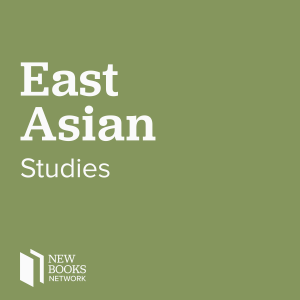
New Books in East Asian Studies
Society & Culture

Corey Byrnes, "Fixing Landscape: A Techno-Poetic History of China’s Three Gorges" (Columbia UP, 2019)
 2022-05-19
2022-05-19
Download
Right click and do "save link as"
Corey Byrnes’ Fixing Landscape: A Techno-Poetic History of China’s Three Gorges (Columbia University Press, 2019) is a work of considerable historical and disciplinary depth. Byrnes brings together the Tang dynasty poetry of Du Fu, Song travel writing about the same, late Qing cartographic ventures, texts written by Western travelers in the 19th and 20th centuries, as well as contemporary Chinese film and landscape art (among many other sources) to analyze how the Three Gorges region has been written and rewritten. The books’ title, and its critical intervention, turns on the dual meaning of “fixing.” A “fixed” landscape is both a (constructed) space of cultural coherence and a terrain continuously altered to hew to social, political, economic, and even moral demands. By investigating aesthetic forms that seek to represent and mold the Three Gorges, Byrnes investigates how “landscape ideas act materially in the production of space.” The text is rich with sustained close readings of visual and textual landscape aesthetics; such formal analysis is in turn deftly woven into elegant arguments that speak not only to Chinese studies, but disciplines such as media theory and the environmental humanities. I greatly enjoyed our conversation, and the chance to speak to Corey about a book whose first iteration as a graduate project I witnessed in the early days of my own doctorate, an editing process about which you will hear more in the following episode.
Julia Keblinska is a Post-Doctoral Researcher at the Center for Historical Research at the Ohio State University specializing in Chinese media history and comparative socialisms.
Learn more about your ad choices. Visit megaphone.fm/adchoices
Support our show by becoming a premium member! https://newbooksnetwork.supportingcast.fm/east-asian-studies
view more
More Episodes
012345678910111213141516171819
Create your
podcast in
minutes
- Full-featured podcast site
- Unlimited storage and bandwidth
- Comprehensive podcast stats
- Distribute to Apple Podcasts, Spotify, and more
- Make money with your podcast
It is Free
- Privacy Policy
- Cookie Policy
- Terms of Use
- Consent Preferences
- Copyright © 2015-2024 Podbean.com





